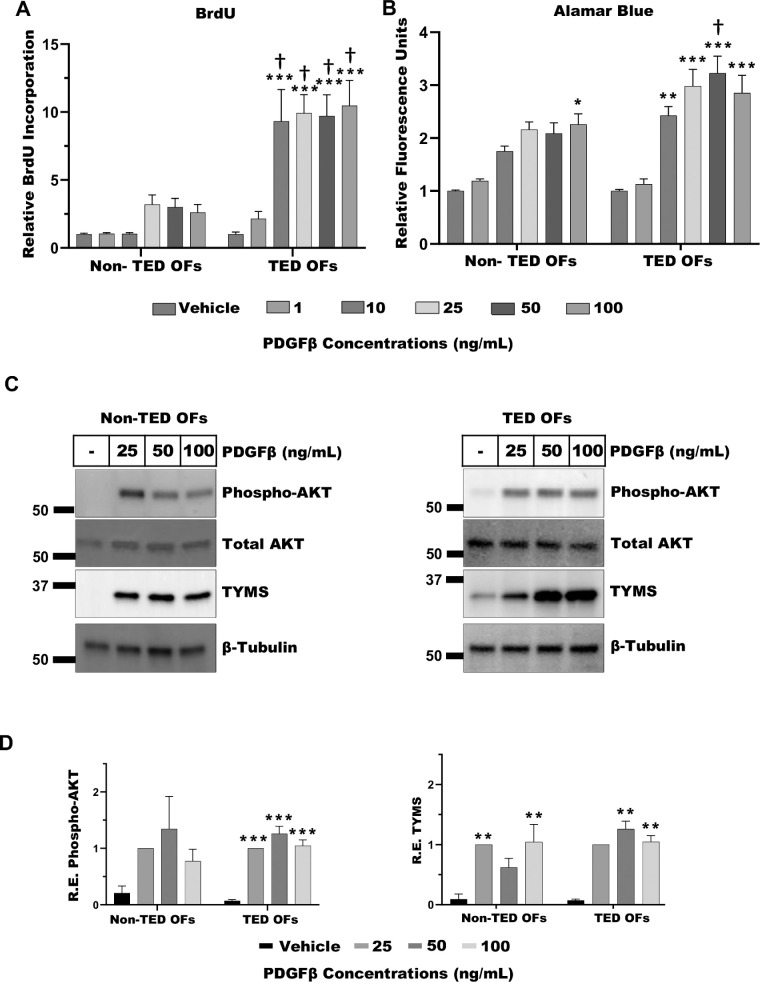Figure 1.
PDGFβ increases orbital fibroblast (OF) proliferation, activation, PI3K/AKT signaling, and TYMS expression. (A) Non-TED and TED OFs were treated with vehicle, 1, 10, 25, 50, or 100 ng/mL PDGFβ for 72 hours. The nucleotide analog BrdU was added to measure DNA synthesis. After culture, cells were fixed and the BrdU label was detected by ELISA. PDGFβ treatment resulted in a dose-dependent increase in OF proliferation. TED OFs accumulated significantly more BrdU than non-TED OFs. Results are presented as means ± SEM from triplicate wells. The experiment was performed in four patients with non-TED and four patients with TED OFs. (B) Equal numbers of non-TED or TED OFs were treated with PDGFβ as indicated for 48 to 72 hours. Cells were then treated with Alamar Blue assay reagent for 1 hour. Fluorescent signal showing Alamar Blue reagent reduction was measured. Vehicle (DMSO) treated cells served as control. The experiment was performed in four non-TED and four TED OFs. (C) Non-TED and TED OFs were grown to confluence and treated with PDGFβ for 48 hours. Cells were lysed and analyzed by Western blot for phospho-AKT, total AKT, TYMS, and β-Tubulin (loading control). Phospho-AKT levels were normalized to total AKT levels. TYMS was normalized to β-tubulin levels. (D) Quantification of Western blots for phospho-AKT and TYMS. The experiments were repeated in at least three non-TED and three TED OF strains with representative results shown. One-way ANOVA with Dunnett's multiple comparisons was used to analyze the data. * P ≤ 0.05, ** P = 0.005, *** P < 0.0008, and non-TED versus TED: † P ≤ 0.05.

